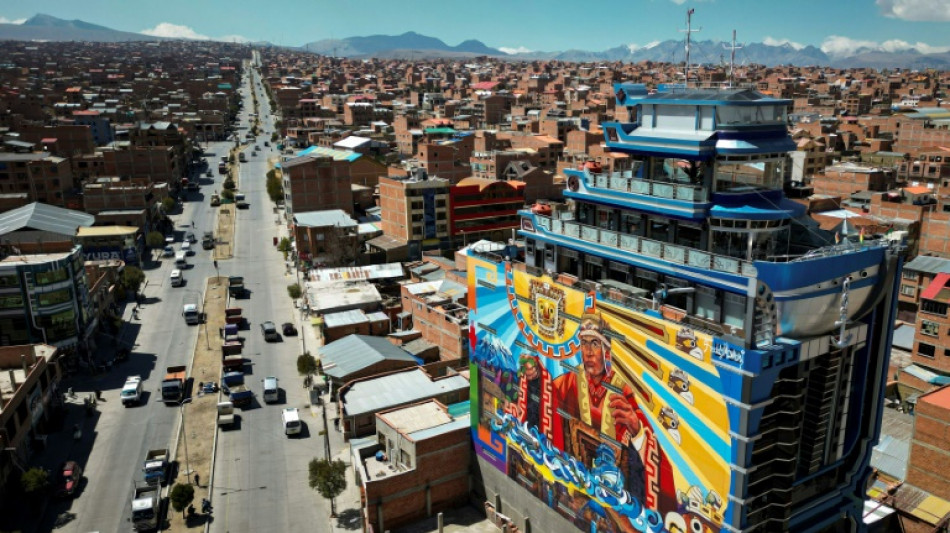
-
 NFL fines Cowboys owner Jones $250,000 over gesture to fans
NFL fines Cowboys owner Jones $250,000 over gesture to fans
-
Bengals sign veteran quarterback Flacco after Burrow injury

-
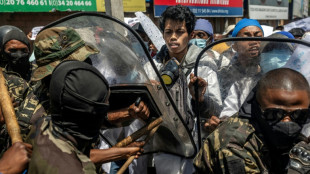 New prime minister inspires little hope in protest-hit Madagascar
New prime minister inspires little hope in protest-hit Madagascar
-
Is Trump planning something big against Venezuela's Maduro?

-
 EU wants to crack down on 'conversion therapy'
EU wants to crack down on 'conversion therapy'
-
French sex offender Pelicot says man who abused ex-wife knew she was asleep
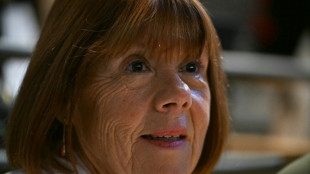
-
 Trump says 'real chance' to end Gaza war as Israel marks Oct 7 anniversary
Trump says 'real chance' to end Gaza war as Israel marks Oct 7 anniversary
-
UK prosecutors to appeal dropped 'terrorism' case against Kneecap rapper

-
 Spain, Inter Miami star Alba retiring at end of season
Spain, Inter Miami star Alba retiring at end of season
-
EU targets foreign steel to rescue struggling sector
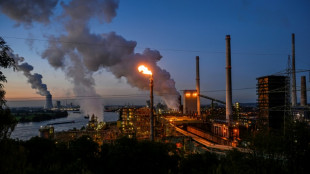
-
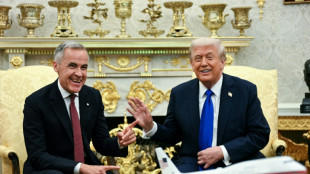 Trump talks up Canada deal chances with visiting PM
Trump talks up Canada deal chances with visiting PM
-
Knight rides her luck as England survive Bangladesh scare

-
 Pro-Gaza protests flare in UK on anniversary of Hamas attack
Pro-Gaza protests flare in UK on anniversary of Hamas attack
-
Top rugby unions warn players against joining rebel R360 competition

-
 Outcast Willis 'not overthinking' England absence despite Top 14 clean sweep
Outcast Willis 'not overthinking' England absence despite Top 14 clean sweep
-
Trump says 'real chance' of Gaza peace deal

-
 Macron urged to quit to end France political crisis
Macron urged to quit to end France political crisis
-
No.1 Scheffler seeks three-peat at World Challenge

-
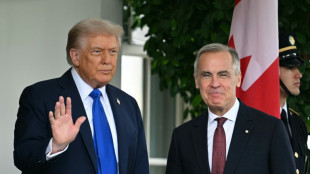 Canadian PM visits Trump in bid to ease tariffs
Canadian PM visits Trump in bid to ease tariffs
-
Stocks falter, gold shines as traders weigh political turmoil

-
 Senators accuse US attorney general of politicizing justice
Senators accuse US attorney general of politicizing justice
-
LeBron's 'decision of all decisions' a PR stunt

-
 Observing quantum weirdness in our world: Nobel physics explained
Observing quantum weirdness in our world: Nobel physics explained
-
WTO hikes 2025 trade growth outlook but tariffs to bite in 2026
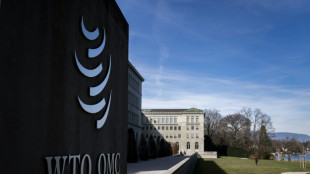
-
 US Supreme Court hears challenge to 'conversion therapy' ban for minors
US Supreme Court hears challenge to 'conversion therapy' ban for minors
-
Italy's Gattuso expresses Gaza heartache ahead of World Cup qualifier with Israel

-
 EU targets foreign steel to shield struggling sector
EU targets foreign steel to shield struggling sector
-
Djokovic vanquishes exhaustion to push through to Shanghai quarterfinals
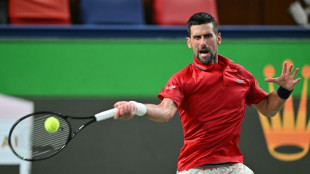
-
 Stocks, gold rise as investors weigh AI boom, political turmoil
Stocks, gold rise as investors weigh AI boom, political turmoil
-
Swiatek coasts through Wuhan debut while heat wilts players

-
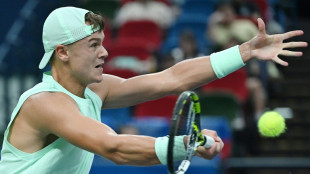 Denmark's Rune calls for heat rule at Shanghai Masters
Denmark's Rune calls for heat rule at Shanghai Masters
-
Japanese football official sentenced for viewing child sexual abuse images
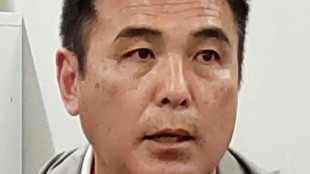
-
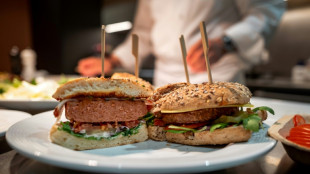 'Veggie burgers' face grilling in EU parliament
'Veggie burgers' face grilling in EU parliament
-
Trio wins physics Nobel for quantum mechanical tunnelling

-
 Two years after Hamas attack, Israelis mourn at Nova massacre site
Two years after Hamas attack, Israelis mourn at Nova massacre site
-
German factory orders drop in new blow to Merz
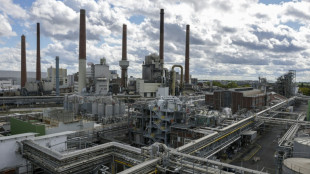
-
 Man City star Stones considered retiring after injury woes
Man City star Stones considered retiring after injury woes
-
Kane could extend Bayern stay as interest in Premier League cools

-
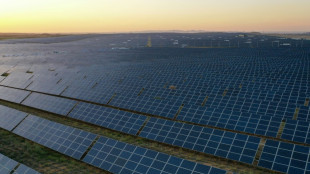 Renewables overtake coal but growth slows: reports
Renewables overtake coal but growth slows: reports
-
Extreme rains hit India's premier Darjeeling tea estates
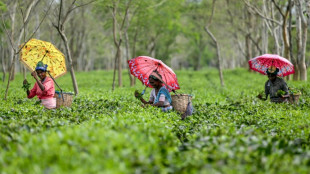
-
 Raducanu retires from opening match in Wuhan heat with dizziness
Raducanu retires from opening match in Wuhan heat with dizziness
-
UK's Starmer condemns pro-Palestinian protests on Oct 7 anniversary

-
 Tokyo stocks hit new record as markets extend global rally
Tokyo stocks hit new record as markets extend global rally
-
Japan's Takaichi eyes expanding coalition, reports say
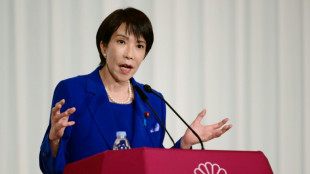
-
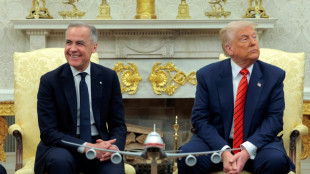 Canadian PM to visit White House to talk tariffs
Canadian PM to visit White House to talk tariffs
-
Indonesia school collapse toll hits 67 as search ends
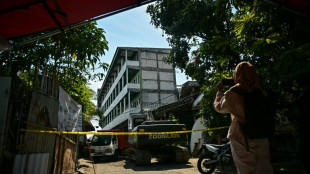
-
 Dodgers hold off Phillies, Brewers on the brink
Dodgers hold off Phillies, Brewers on the brink
-
Lawrence sparks Jaguars over Chiefs in NFL thriller

-
 EU channels Trump with tariffs to shield steel sector
EU channels Trump with tariffs to shield steel sector
-
Labuschagne out as Renshaw returns to Australia squad for India ODIs


'Never again': Indigenous Bolivians sour on socialism
A giant cruise ship dominates the skyline in the city of El Alto in landlocked Bolivia, a symbol of the transformation of an Indigenous bastion keenly fought over in Sunday's presidential election.
The "Titanic," as the tallest building in the city is known, serves as the latest in a collection of uber-flamboyant neo-Andean "cholets" -- a mix of chalet and "chola" or Indigenous woman -- built by Bolivia's Aymara bourgeoisie over the past two decades.
Victor Choque Flores, a self-made 46-year-old businessman, forked out millions of dollars for his "ship in a sea of bricks," as he calls his futuristic 12-story palace which looms large over El Alto's red-brick homes.
"It's a bit like us," he said, adding that while rooted in the past, Indigenous Bolivians are "looking towards the future."
For many Aymara, that future no longer includes the ruling socialists, who emancipated the Indigenous majority over the past two decades.
For the first time since 2005, the political right is expected to triumph in presidential elections as Bolivians ditch the left over a deep economic crisis.
- Gratitude, frustration -
Nearly 20 years after one of South America's longest-serving presidents, Evo Morales, was elected on a promise of socialist revolution, the Andean country is running on empty.
Widespread shortages of dollars, fuel and basic foodstuffs have left some Bolivians worse off than before he took over.
Choque Flores still feels grateful to Morales, Bolivia's first Indigenous president, for throwing open the doors of power to the country's brown-skinned majority.
But El Alto, a flourishing merchant city, is also increasingly defined by its residents' desire to simply get ahead.
Accusing the socialists of multiple "failures," Choque Flores said he was ready to vote for "another political direction," without revealing which candidate.
- Gas War cauldron -
The fate of Bolivia's left is inextricably linked with El Alto.
Morales came to power in the wake of a bloody crackdown on a revolt in the city over gas exports, which led to over 60 deaths and the fall of a US-backed president in 2003.
In the years since, Morales repeatedly dispatched his supporters down the mountain from El Alto to the seat of government in La Paz to defend his causes.
But the winds of change are blowing on the streets of the Andean metropolis, where women in traditional bowler hats, flouncy "pollera" skirts and shawls hawk goods as gleaming cable cars ferry commuters overhead.
Across the million-strong city, walls are covered with leading center-right presidential candidate Samuel Doria Medina's promise to restore supplies of fuel and dollars in "100 dias carajo" (100 days goddammit).
In a sign of the importance of the Indigenous vote, Doria Medina, who is running neck-and-neck with right-wing ex-president Jorge Quiroga, staged his final campaign rally in El Alto on Wednesday.
Jonathan Vega, a 25-year-old chef who attended the gathering, said he was counting on Doria Medina to "restore stability."
A 72-year-old farmer invited to discuss the election at the local "San Gabriel" Aymara-language TV and radio station also backed change.
Arcenio Julio Tancara lambasted Morales's call for voters to spoil their ballot over the refusal by authorities to allow him to run for a fourth term.
"He has always called for unrest and for strikes and blockades.
"At first, we understood that it might be necessary, but since we've seen that it wasn't for a cause, but simply so that he'd be named leader."
- 'They disinfect themselves' -
Morales, who is wanted on charges of trafficking a minor, has sought to galvanize his base by warning that hard-won Indigenous rights are under threat if light-skinned politicians of European heritage take over.
It's a tactic that plays well with rural Aymara particularly.
"We don't want to go back to the 20th century," said Matilde Choque Apaza, the leader of an Indigenous and rural women's association, who wore a colorful "aguayo" hold-all knotted around her neck.
Opposition candidates, she said, "clasp (Indigenous) hands tightly" when on the campaign trail, but when they get into their cars or go home, "they disinfect themselves."
She backed the appeal made by Morales for a mass campaign of spoiled ballots to sap the election of legitimacy.
Polls show around 14 percent of voters are set to answer his call -- a far cry from the three outright majorities Morales secured during his 2006-2019 rule.
Santos Colque Quelca, a 38-year-old presenter at San Gabriel radio, said that growing numbers of listeners were swearing "never again with Evo or (current President Luis) Arce" and were switching their support to the "least bad" opposition candidate.
Pablo Mamani Ramirez, a sociologist at UMSA university in La Paz, said Morales' bid for "eternal" rule ran counter to Indigenous traditions.
"The logic of the Andean world is that power is rotated."
E.Burkhard--VB
